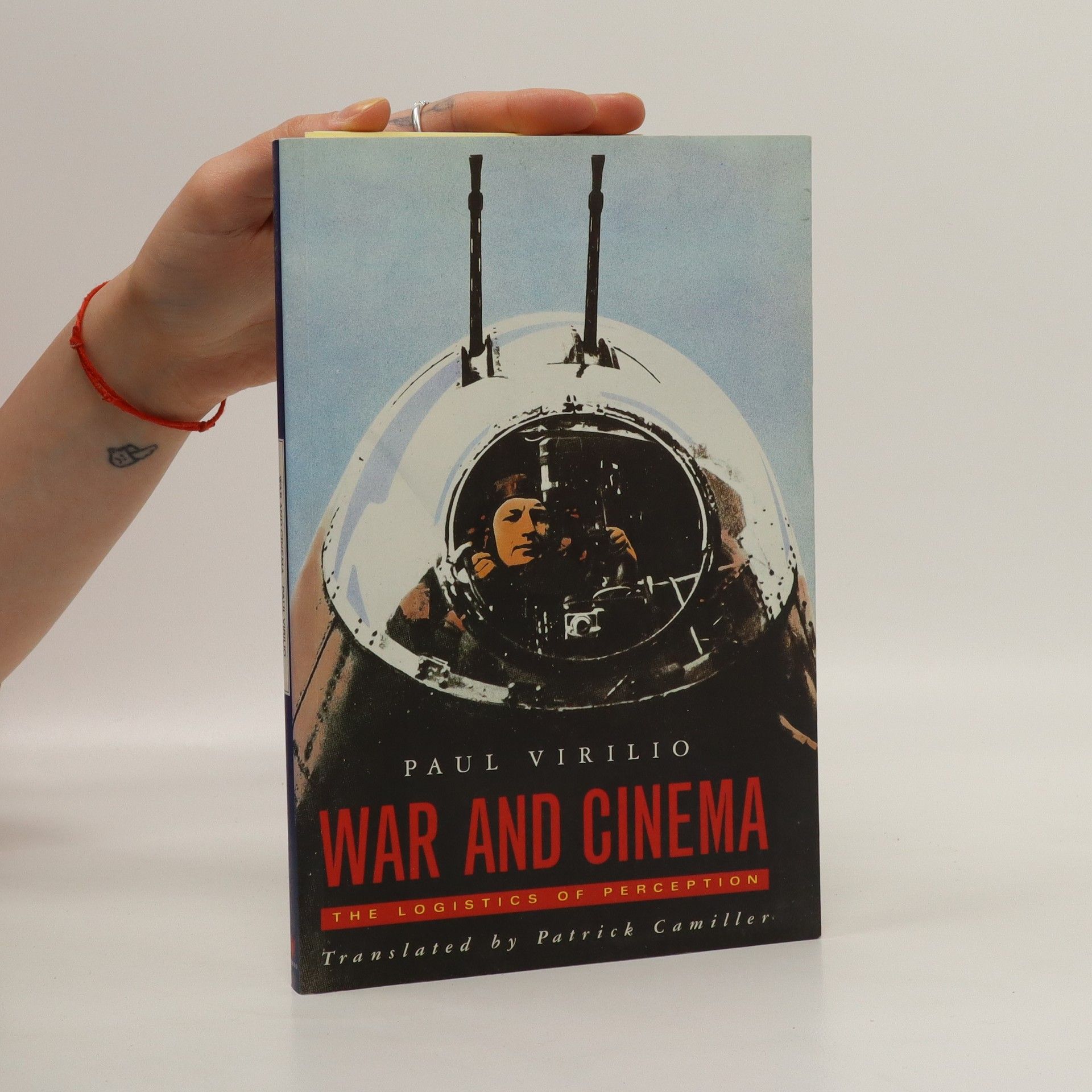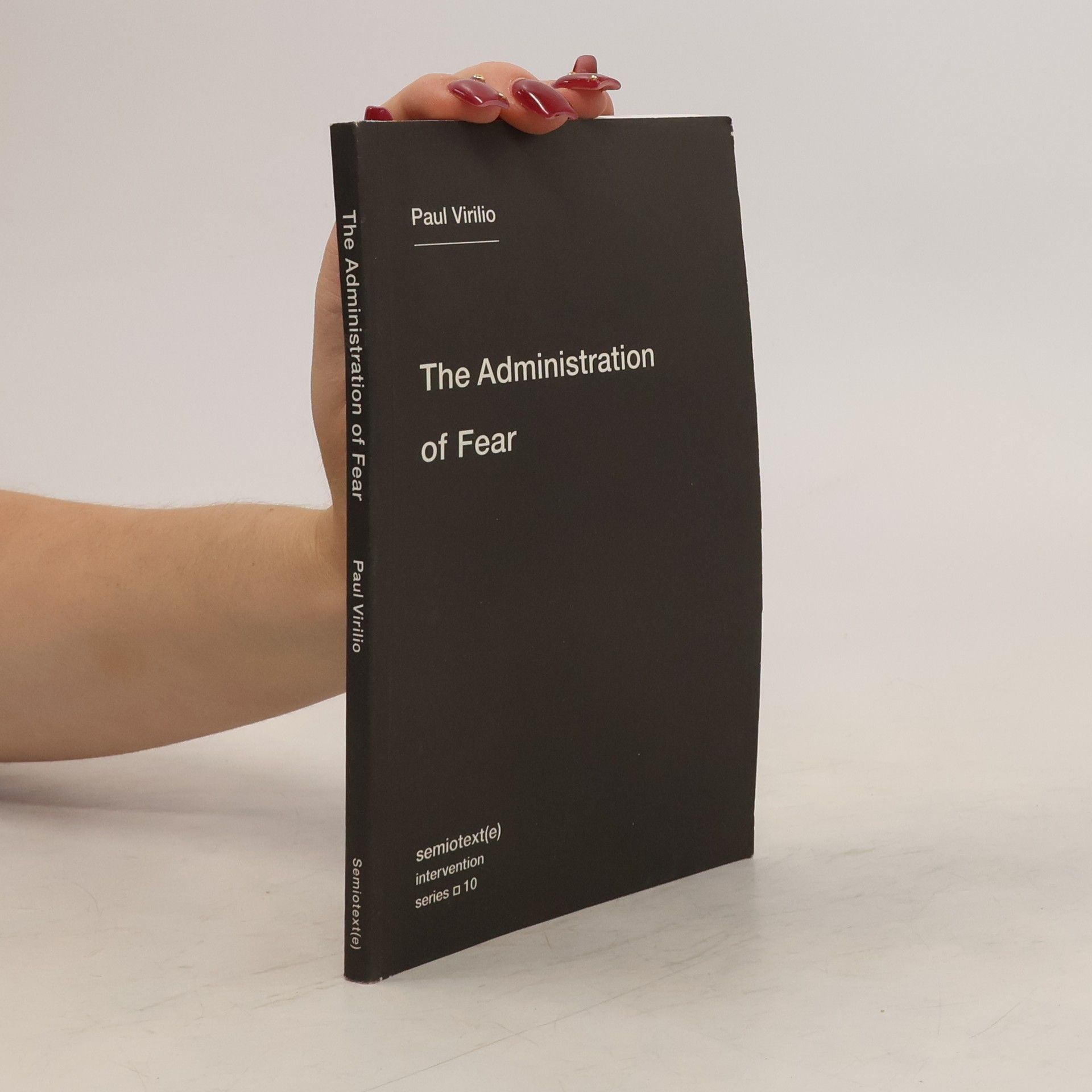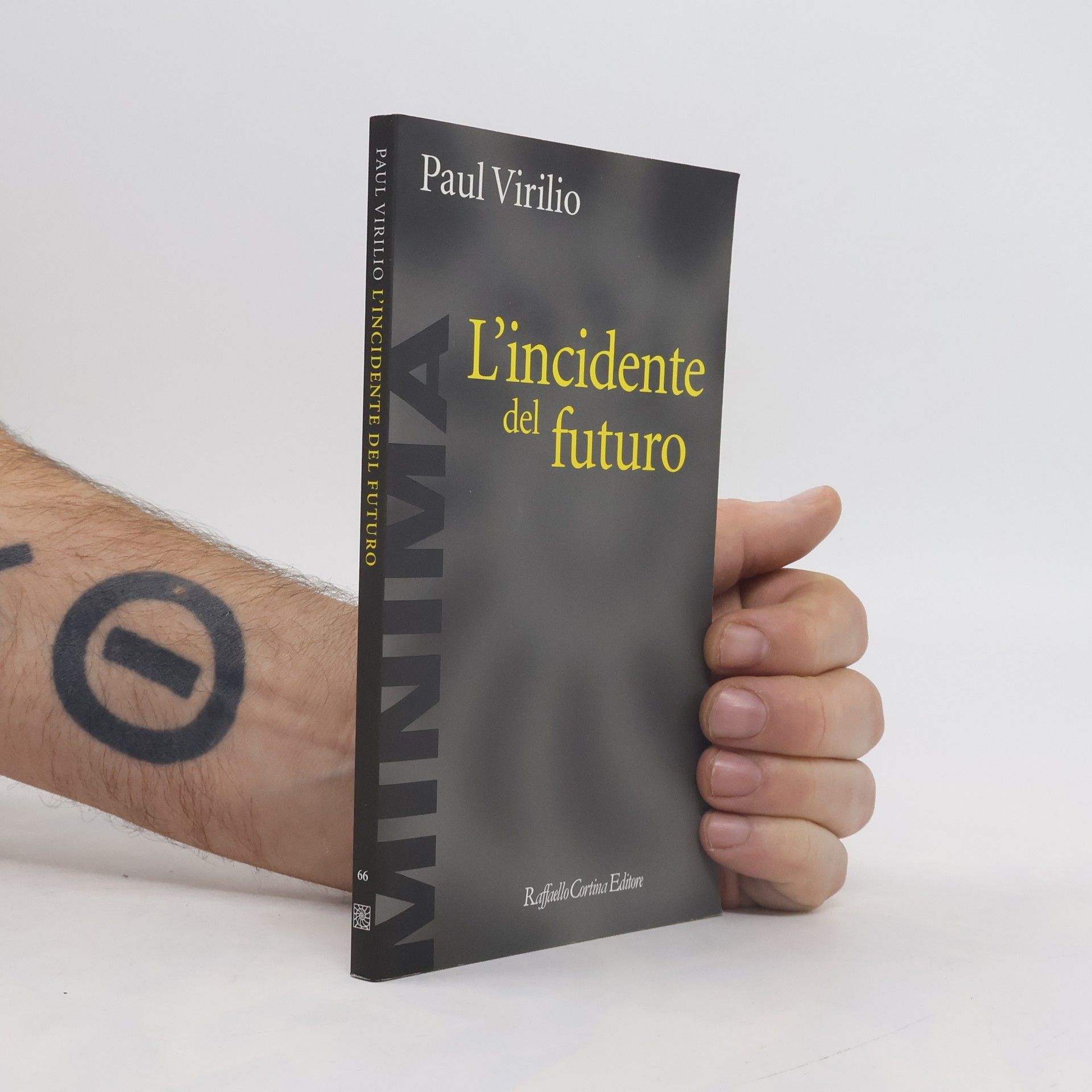Minima - 66: L'incidente del futuro
- 92pagine
- 4 ore di lettura
Paul Virilio è stato un teorico culturale e urbanista, noto per i suoi scritti sulla tecnologia in relazione alla velocità e al potere. Il suo lavoro attinge a diversi riferimenti all'architettura, alle arti, alla città e al campo militare per esplorare come questi elementi modellino la nostra comprensione del mondo. Virilio ha esaminato gli impatti dell'accelerazione costante sulla società e sulla mente. Le sue analisi offrono profonde intuizioni sulle dinamiche della vita moderna.







Out of print for almost a decade, we are thrilled to bring back one of our most requested hard-to-find titlesphilosopher and cultural theorist Paul Virilio's Bunker Archeology. In 1994 we published the first English-language translation of the classic French edition of 1975, which accompanied an exhibition of Virilio's photographs at the Centre Pompidou. In Bunker Archeology, urbanist Paul Virilio turns his attentionand camerato the ominous yet strangely compelling German bunkers that lie abandoned along the coast of France. These ghostly reminders of destruction and oppression prompted Virilio to consider the nature of war and existence, in relation to both World War II and contemporary times. Virilio discusses fortresses and military space in general as well as the bunkers themselves, including an examination of the role of Albert Speer, Hitler's architect, in the rise of the Third Reich.
Virilio and Lotringer revisit their prescient book on the invisible war waged by technology against humanity since World War II.
A new interview with the philosopher of speed, addressing the ways in which technology is utilized in synchronizing mass emotions.
Looking at how the technologies of cinema and warfare have developed a fatal interdependence, this book explores these conjunctions from a range of perspectives. It gives a detailed technical history of weaponry, photography and cinematography, with accounts of films and military campaigns.
Exploring the concept of "picnolepsy," this work delves into the consciousness shaped by speed and its effects on perception. Virilio uses a range of cultural references, from cinema to notable historical figures, to illustrate the impact of speed on modern life. He connects the experience of living in a fast-paced society to themes of absence and disconnection. This edition includes a new introduction by Jonathan Crary, enhancing the discussion of visual culture and setting the stage for Virilio's later work on the intersection of war and cinema.
Focusing on the concept of speed as a transformative force, Paul Virilio's work examines its role in shaping civilization through technological advances linked to militarization. He argues that speed, rather than class or wealth, drives societal change, presenting a topological history of humanity's evolution. Drawing from various thinkers, Virilio's "technical vitalism" explores the implications of rapid advancements, including military technology and information systems, offering a critical perspective on their impact on human nature and society's future.
A vision of the city as a web of interactive, informational networks that turn our world into a prison-house of illusory transcendence.
“One day the day will come when the day will not come.” Bleak in its analysis of the social destruction wrought by modern technologies of communication and surveillance, but passionately political, Open Sky is Paul Virilio’s most far-reaching and radical book for many years. Deepening and extending his earlier work on speed perception and political control, and applying it now to the global ‘real time’ of the information superhighways, he explores the growing danger of what he calls a “generalized accident,” provoked by the breakdown of our collective and individual relation to time, space and movement.But this is not merely a lucid and disturbing lament for the loss of real geographical spaces, distance, intimacy or democracy. Open Sky is also a call for revolt—against the insidious and accelerating manipulation of perception by the electronic media and repressive political power, against the tyranny of “real time,” and against the infantilism of cyberhype. Paul Virillo makes a powerful case for a new ethics of perception, and a new ecology, one which will not only strive to protect the natural world from pollution and destruction, but will also combat the devastation of urban communities by proliferating technologies of control and virtuality.
Art used to be an engagement between the artist and materials, but now as art practices and mediums have changed, these materials have also changed. Where art used to talk of the aesthetics of disappearance, it must now confront the disappearance of the aesthetic. In the twenty-first century, the new battleground is art as light versus art as matter. In this work, author Paul Virilio argues that this change reflects how speed and politics have been transformed to speed and mass culture.